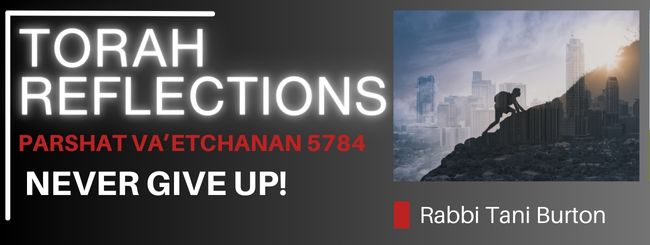בס”ד
Integrating Torah into one’s life through reflection and conversation can be an incredibly fun and engaging experience. It’s a journey of discovery, where ancient wisdom and timeless teachings come to life in our daily experiences. Through reflection, we have the opportunity to dive deep into the rich tapestry of Torah, extracting profound insights and lessons that resonate with our modern lives. The joy lies in the ‘aha’ moments, those instances when a Torah verse or story suddenly connects with our personal challenges, aspirations, and values. And when we engage in conversations about Torah with others, it becomes an interactive exploration, where diverse perspectives and interpretations enhance our understanding. These dialogues often spark excitement and intellectual curiosity, making the learning process both enjoyable and fulfilling. Torah becomes a vibrant and dynamic part of our lives, offering not just guidance but also a source of endless fascination, connection, and growth.
NOTE: Don’t feel obligated to go through every source or answer all the questions—unless you want to. Even one source, or one question will give you plenty of material for discussion and meditation. Enjoy this!
Some thoughts from the parsah
In Deuteronomy 3:23-26, Moses passionately prays to G-d, asking to enter the Promised Land, even though G-d had already decreed that he would not be allowed to do so due to the incident of striking the rock. Moses does not just ask once but prays 515 times, reflecting the numerical value of the word “va’etchanan” (“and I pleaded”). However, G-d eventually tells him to stop, saying, “Let it suffice thee; speak no more unto Me of this matter.” This command raises questions: Why would G-d need to limit Moses’ prayers, and what did He mean by saying “it is enough”?
Rabbi Mordechai Yosef Lainer, the Izhbitzer Rebbe, teaches that this passage reveals a profound spiritual lesson. Even when circumstances seem hopeless—like a sharp sword at one’s neck, or, in this case, a Divine Decree against entering the Land of Israel—one should never give up hope or cease praying. G-d’s instruction to Moses to stop praying was not a rejection but a confirmation that Moses had succeeded in teaching the Israelites the power of persistence in seeking Divine compassion. This lesson, of never giving up in prayer and maintaining trust in G-d’s compassion, is invaluable.
Rebbe Nachman of Breslov, in his own teaching on this verse, emphasized the importance of serving G-d with simplicity and persistence. After he finished his lesson, he cried out, “Gevald! Never give up!” Similarly, a teaching from Pirkei Avot (4:9) reminds us that spiritual “poverty”—an awareness of our complete dependence on G-d—creates a vessel that can be filled with Divine blessings.
May we all have the strength to trust in G-d’s everlasting compassion and use the powerful gift of prayer in our lives.
Now, reflect upon the following questions
1. How do you understand the balance between persistence in prayer and accepting G-d’s will? Can you identify moments in your life where this balance was particularly challenging?
2. What does it mean to you to “never give up” in the context of your own spiritual journey? How does this principle apply to other areas of your life?
3. In what ways can spiritual ‘poverty’—a sense of lacking or emptiness—be a catalyst for growth and deeper connection with G-d? How have you experienced this in your own life?
4. Moses’ relentless prayer and G-d’s eventual command to stop suggest a complex relationship between human desire and Divine Decree. How do you reconcile your personal desires with a sense of Divine Purpose or destiny?
5. How can the lessons from this passage influence the way you approach challenges or seemingly hopeless situations in your life? How might you share these insights with your loved ones?
Shabbat Shalom!
By Rabbi Tani Burton
If you want more questions for contemplation, SEE THE OTHER BLOGS FROM RABBI TANI BURTON ABOUT DE PARSHAT QUESTIONS
© Copyright, all rights reserved. If you enjoyed this article, we encourage you to distribute it further.
Our blogs may contain text/quotes/references/links that include copyright material of Mechon-Mamre.org, Aish.com, Sefaria.org, Chabad.org, and/or AskNoah.org, which we use in accordance with their policies.
